LG G4 vs Samsung Galaxy S6
Can LG topple the best phone on the planet?
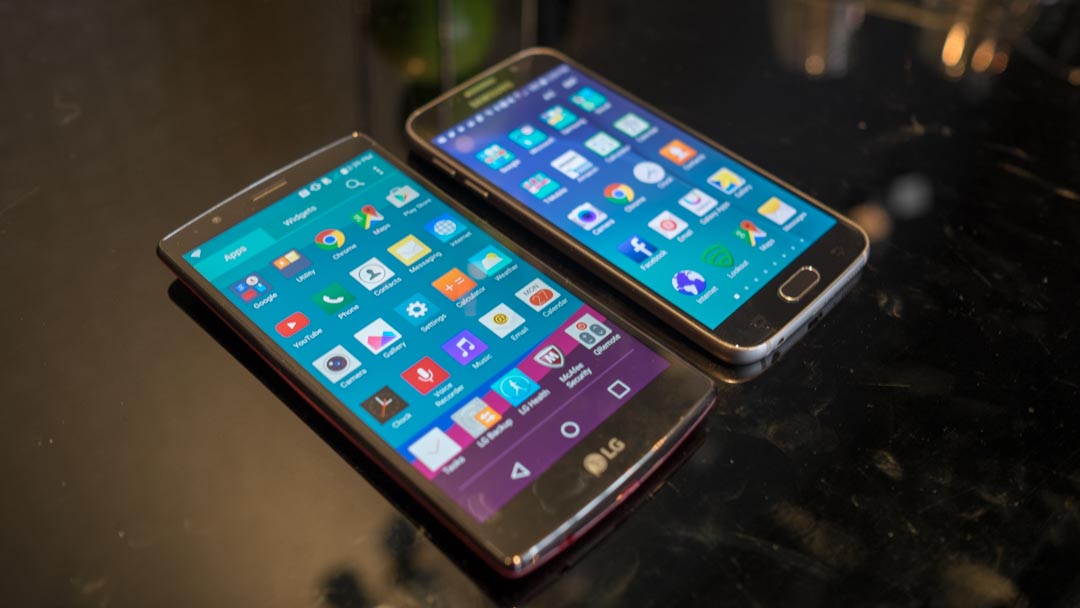
The Samsung Galaxy S6 isn't a perfect phone, but with its combination of a stunning design, a great screen and a brilliant camera it is the best phone in the world right now; though, you never know, that may change when we review the LG G4.
With a stylish new design of its own, plus a top-end screen and a great camera, the LG G4 seems prepared to go blow for blow with Samsung's best. So how do these two superphones really compare? Let's find out.
Design
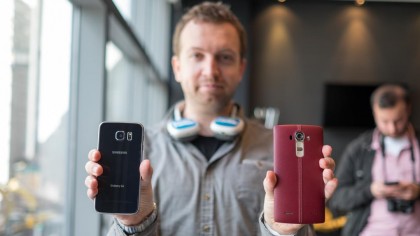
The leather-backed LG G4 can't help but stand out from the crowd, as it's a more unusual material choice than the metal and plastic found on most smartphones. Adding to its slightly unusual appearance is a gently curved back and screen, which is undeniably premium, but also large and heavy at 149.1 x 75.3 x 8.9mm and 154g.
The Samsung Galaxy S6 has a more conventional, but no less stylish, design, with a metal frame and glass back. The glass looks good, with an almost gemstone-like quality to it, though it can be a fingerprint magnet.
At 143.4 x 70.5 x 6.8mm and 136g it's smaller, lighter and a whole lot slimmer than LG's latest. The smaller size is arguably a good thing and the slim build certainly looks good but it comes at the cost of a smaller battery.
Screen
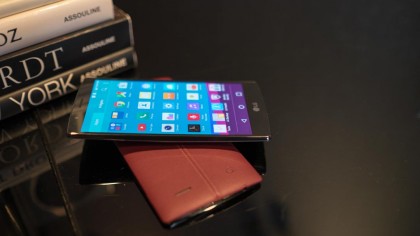
There's a big 5.5-inch 1440 x 2560 QHD IPS Quantum display on the LG G4. That's bigger than the 5.1-inch Super AMOLED Samsung Galaxy S6, but it's the same resolution.
Typically Samsung's screens are brighter and richer than LG's, but the G4 is supposedly 25% brighter and richer than the G3, so LG could be closing the gap. It's also 98% DCI (digital cinema initiatives) compliant, making it almost the same class as a cinema screen.
Get daily insight, inspiration and deals in your inbox
Sign up for breaking news, reviews, opinion, top tech deals, and more.
The Samsung Galaxy S6 in comparison is apparently 110% compliant according to LG, with more oversaturated and less natural colours, though the S6 doesn have the ability to tone down that effect.
Power and storage
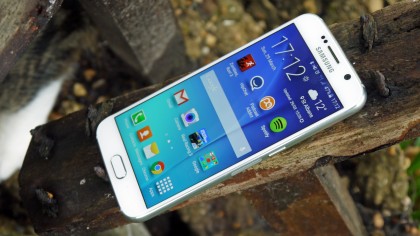
In theory the Samsung Galaxy S6 should have the LG G4 beat here, as it has a 64-bit octa-core Exynos 7420 processor, with four cores clocked at 2.1GHz and four at 1.5GHz, while the LG G4 has a 64-bit 1.8GHz hexa-core Snapdragon 808 chip.
Given that the Galaxy S6 beats even Snapdragon 810-packing devices in benchmarks it seems likely that it's a more powerful phone than the LG G4, but it's not always that simple, as elements like the UI can play a big role in how laggy the response is under the finger.
In any case they're both very powerful handsets and both have 3GB of RAM, allowing them to multi-task effectively too.
As for storage the Samsung Galaxy S6 comes with a choice of 32, 64 or 128GB built in, while the LG G4 only comes in one size: 32GB. But the LG G4 also has a microSD card slot and supports cards of up to 200GB, while the Samsung Galaxy S6 has no room for expansion. That's a big win for LG's phone.
Camera
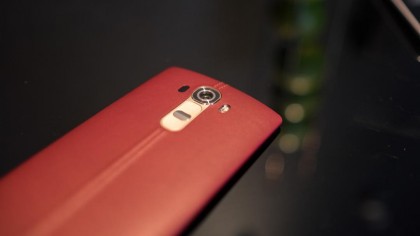
Both Samsung and LG have put a lot of work into their flagship's cameras. The LG G4 has a 16MP rear camera with OIS 2.0, which is supposedly better than older optical image stabilisation modules. It also features laser autofocus for speedy focusing and it has an f/1.8 lens aperture, allowing it to capture a lot of light.
The Samsung Galaxy S6 also has a 16MP camera with optical image stabilisation, though from what LG is saying its version of OIS may be better. Samsung's camera won't likely fare as well in low light either, as it has an f/1.9 lens aperture.
Having said that the Samsung Galaxy S6 is no slouch in poor lighting, so we'll have to see how the G4 compares in practice.
James is a freelance phones, tablets and wearables writer and sub-editor at TechRadar. He has a love for everything ‘smart’, from watches to lights, and can often be found arguing with AI assistants or drowning in the latest apps. James also contributes to 3G.co.uk, 4G.co.uk and 5G.co.uk and has written for T3, Digital Camera World, Clarity Media and others, with work on the web, in print and on TV.